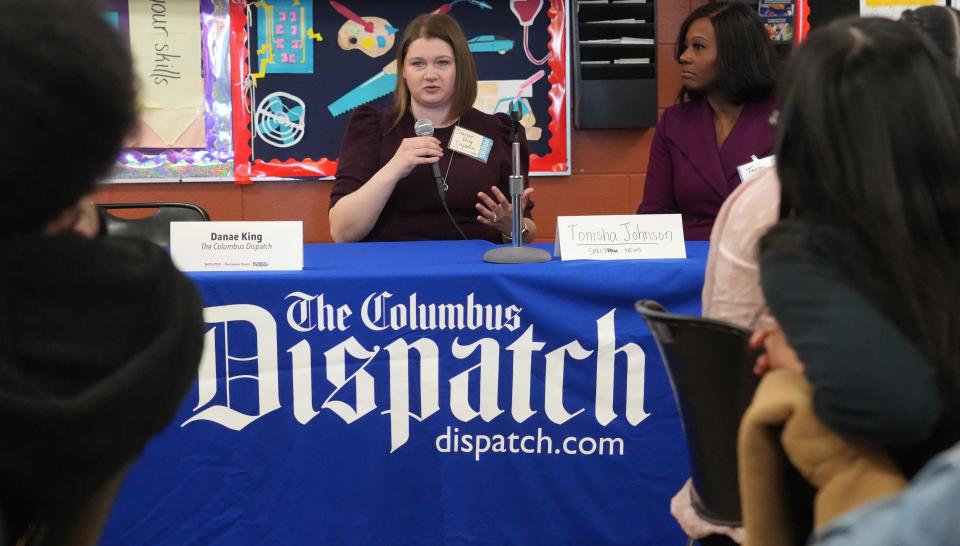Student journalism pops the campus bubble. Here’s how you can help protect it | Opinion
From chronicling the national social movements that started on college campuses to reporting on the wide-ranging influences of our institutions on the state, the work of student journalists is indispensable. If we as a state are invested in increasing accountability and holding truth to power, we would be amiss to fail to protect our student-led journalism.

In February, both the Senate and House versions of a bill to ban health care providers from providing gender-affirming care to minors took strides toward becoming law. Another bill, passed by the House on Thursday, is attempting to ban drag queens in the state. Just last year, a trigger law went into effect that bans all abortions in Tennessee — with no exceptions for rape or incest. In 2021, the Knoxville Planned Parenthood building was burned to the ground.
Hear more Tennessee Voices::Get the weekly opinion newsletter for insightful and thought-provoking columns.
For college students across the state, these issues hit particularly close to home. Student journalism plays a critical role in breaking campus “bubbles” and bridging the gap between campus controversies and statewide debates. The controversy around gender-affirming health care was reinvigorated by conservative commentators like Matt Walsh’s attacks on Vanderbilt University’s provision of transgender health services. Politicians around the country even organized statewide rallies and threatened the safety and well-being of students and health care providers until the service was paused. Many of these stories start on college campuses, so protecting student journalism is critical to capturing them at their source.

The impact of student journalism in Tennessee is not a new phenomenon. The Vanderbilt Hustler is one of the oldest newspaper in Tennessee, founded in 1888, and Fisk University’s newspaper was one of the first historically Black college or university newspapers in the country. Student publications across the state report on some of the most pressing social issues of our time, many of which are sparked on college campuses. This isn’t a trend limited to just our state. College newspapers across the country have chronicled everything from anti-war protests to racial justice movements and government corruption.
It’s not just about reporting on off-campus social movements and politics. Our universities serve as the biggest employers, health care providers and landowners in the state. With multi-billion-dollar endowments, it’s no surprise that higher education institutions are major lobbyists and investors, with the power to shape much of our daily lives on and off campuses. Understanding the internal dynamics and decisions made within these institutions is critical to mapping power and influence in Tennessee, and that’s a job only those of us on the “inside,” as college journalists, can accomplish.
So what can we do? All across the country, states are introducing “New Voices” laws — legislation that seeks to preemptively protect student press freedom through state-level legislation. In the 2023 legislative session alone, New Voices bills have been introduced in Connecticut, Missouri, New York and West Virginia. These bills allow for the censorship of student media only if it is libelous or slanderous or violates someone’s privacy. The bill even prevents retaliation against student media advisers who refuse to censor student journalists.
From the 1988 Hazelwood v. Kuhlmeier decision that enabled school administrators to limit school-sponsored media to Tennessee bills that seek to ban critical race theory writing, censorship is more rampant than ever before. Preemptively protecting student media serves more than just our campus community. It allows us to chronicle social movements at their source and hold our administrations accountable.
Aaditi Lele is a Vanderbilt University sophomore serving as the news editor of the Vanderbilt Hustler while participating in the Student Press Law Center's op-ed coaching program for Student Press Freedom Day, which is celebrated on Feb. 23.
This article originally appeared on Nashville Tennessean: Press freedom: Protect student journalism that pops campus bubbles

